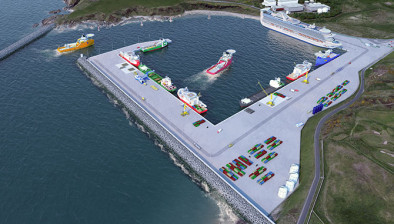Aberdeen man loses challenge against council decision to consider development of part of Torry parkland

An Aberdeen man who sought judicial review of his local authority’s plans to redevelop part of a recreational park near his home as part of a sustainable energy strategy has had a reclaiming motion against the refusal of the petition refused by the Inner House of the Court of Session.
Simon McLean, a Torry resident and user of the nearby St Fittick’s Park, raised the petition after Aberdeen City Council adopted a resolution which included proposals to discuss the development of part of the Park for sustainable energy projects. The petitioner sought an order setting aside the resolution so far as it concerned the Park, but his petition was refused by the lord ordinary. It was noted that planning permission in principle for the development of land including part of the Park was granted in January 2025, however the competence of the procedure surrounding that grant was not under challenge in the petitioner’s action.
The appeal was heard by Lord Malcolm, Lord Armstrong, and Lord Clark. Cherry KC and M Dailly, solicitor advocate, appeared for the reclaimer and N McLean, solicitor advocate, for the respondent.
Discussions with developers
In June 2023, the respondent adopted a new Aberdeen Local Development Plan in which an area of St Fittick’s Park was designated part of an Energy Transition Zone at Aberdeen South Harbour, with a policy presumption in favour of development related to renewable energy. A masterplan was later submitted to the council by ETZ Ltd, a not-for-profit company with net zero based objectives. While this masterplan was out for consultation, the chief officer of the council’s Corporate Landlord function prepared a report to the Council which recommended that the Park be available to support future development of the Energy Transition Zone.
On 11 September 2023, the council resolved that formal dialogue should begin with ETZ and the Port of Aberdeen to discuss how best to take forward development of the sites identified in the masterplan. The petitioner challenged that resolution insofar as it related to St Fittick’s Park, on the basis that certain councillors had a personal interest in ETZ Ltd and thus the decision was vitiated by apparent bias.
The petitioner further submitted that the council was in breach of the public sector equality duty by failing to carry out an equality impact assessment in terms of Regulation 5 of the Equality Act 2010 (Specific Duties) (Scotland) Regulations 2012. This would have identified the impact of developing the Park on those with the protected characteristics of age and disability.
The only live issue before the Lord Ordinary was the failure to carry out an EIA. He took the view that, in their resolution, all the council had done was rule out selling the Park and authorise discussions with potential developers and tenants as to what development of the Park might entail. An EIA at this stage would have to be done without knowledge of the exact proposal or type of proposal under consideration. The petitioner appealed against this decision to the Inner House.
Ingathering of information
Delivering the opinion of the court, Lord Malcolm observed: “The Lord Ordinary described the issue in dispute as a very narrow point. We agree. The key submission before this court was that the Lord Ordinary erred in his characterisation of the council’s resolution.
He continued: “Contrary to the description suggested by the council, it was not ‘a step along the way’ of a wider decision-making process; the resolution was an important policy decision approving development of the Park. It followed that the public service equality duty was engaged.”
Addressing the petitioner’s argument, Lord Malcolm said: “The determining factor here is whether the proposition that the resolution was a policy decision which approved development of the Park is well-founded. In our view it is not. We have not identified any flaw in the Lord Ordinary’s reasoning. The resolution of 11 September 2023 concerning the Park occurred in the policy context of it having already been designated in the Aberdeen Local Development Plan as potentially suitable for development, including industrial use. That designation was not challenged.”
He concluded: “The resolution under challenge involves no more than the ingathering of information in the light of a policy decision already made and which may, or may not, lead to a process which does engage the public service equality duty. It cannot be said that, in the absence of a specific proposal, the view that an equality impact assessment was not required was unreasonable or erroneous in law.”
The reclaiming motion was therefore refused.
















